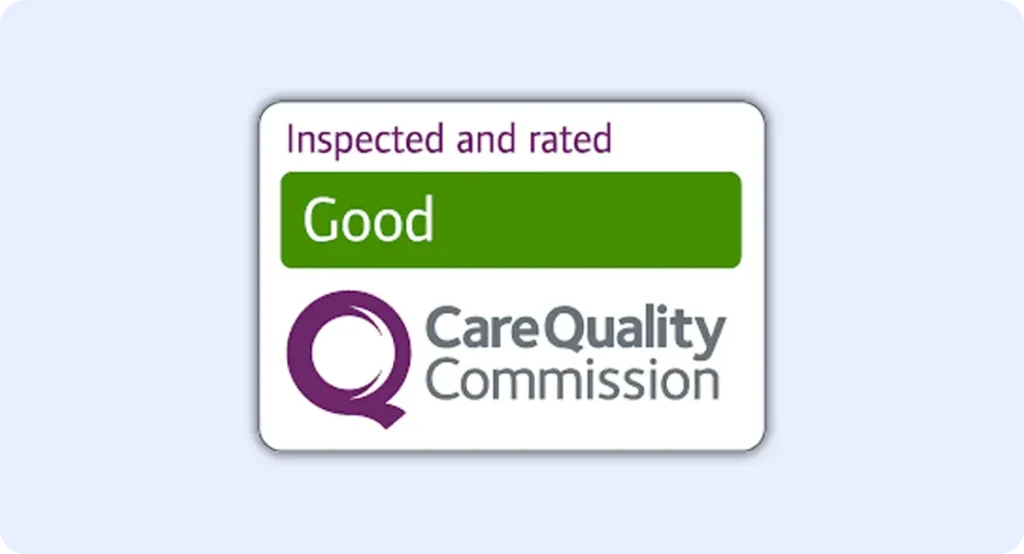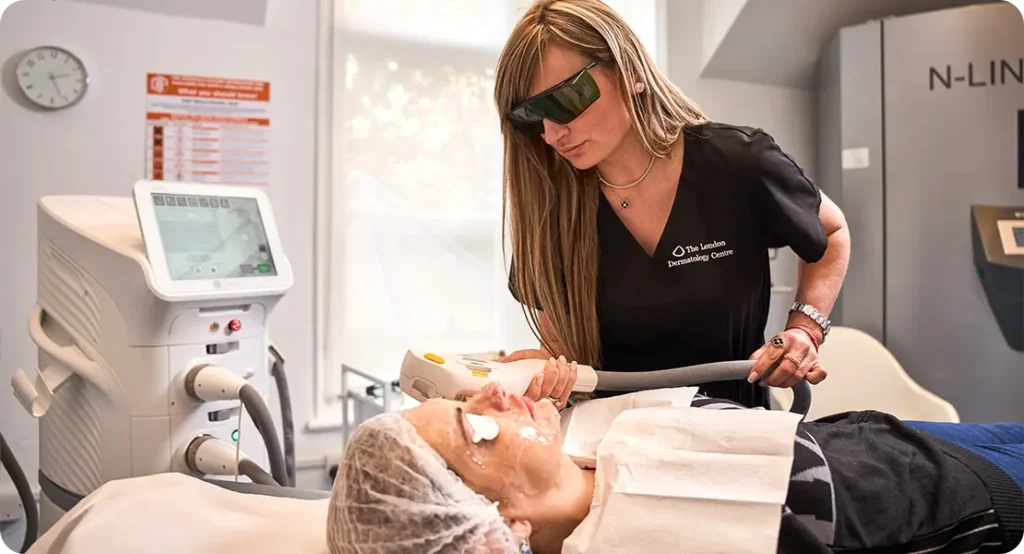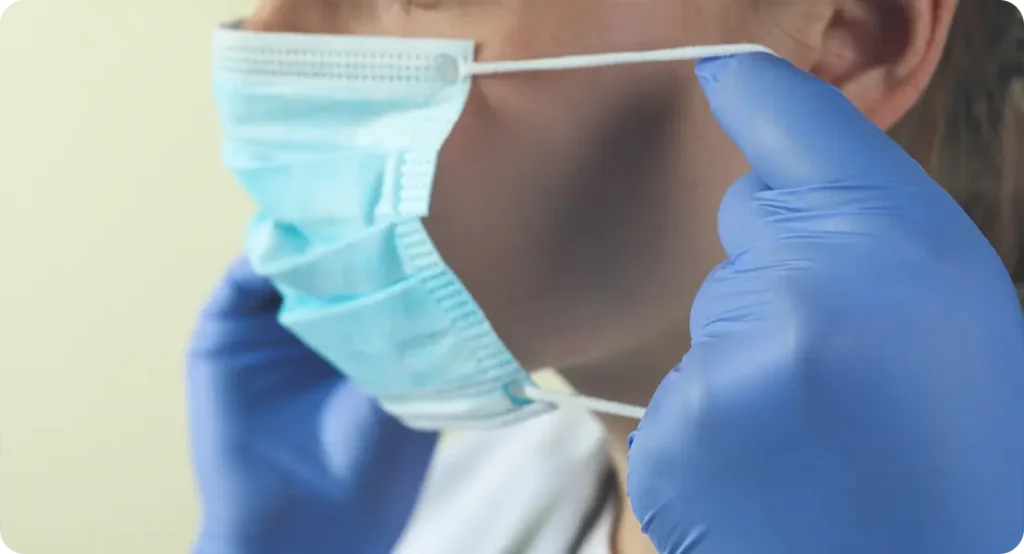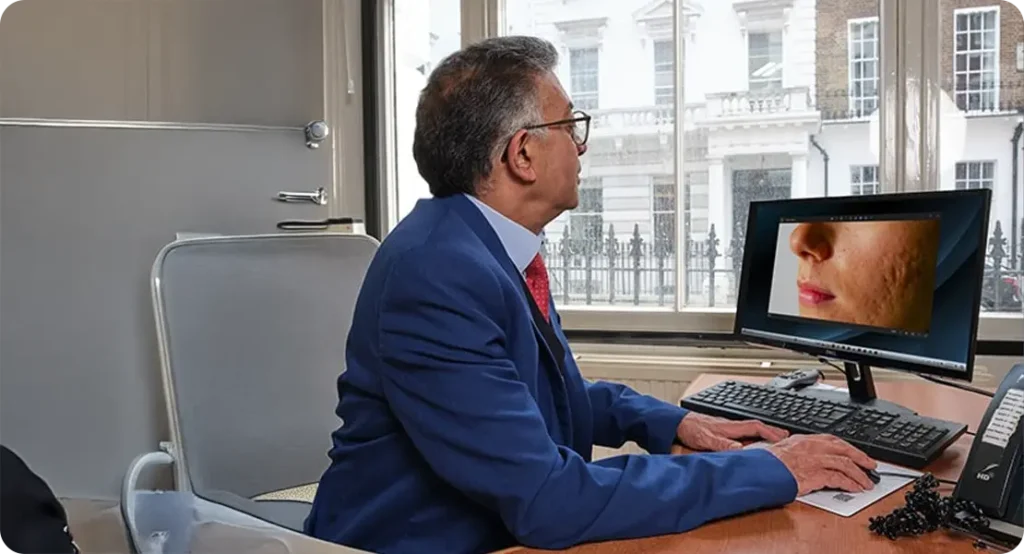Finding the right private dermatology clinic in London can be a daunting task. With so many options available, it’s essential to know what to look for to ensure you receive top-quality care. Whether you need treatment for a skin condition, cosmetic procedures, or a general check-up, these ten tips will help you make an informed decision.
1. Check the Clinic’s Credentials and Reputation
The first step in choosing a dermatology clinic is verifying its credentials. Ensure the clinic is registered with the Care Quality Commission (CQC), the UK’s independent regulator of health and social care services. You can check their website for ratings and reports on the clinic’s standards. Clinics that are CQC-approved have undergone rigorous inspections and must meet strict quality and safety guidelines. Choosing a clinic with a solid regulatory standing ensures a higher level of patient care and safety.
Additionally, look for dermatologists who are members of reputable organisations such as:
- The British Association of Dermatologists (BAD)
- The General Medical Council (GMC)
- The Royal College of Physicians (RCP)

A well-established clinic with experienced specialists and good regulatory standing is a sign of high-quality care. It is also a good idea to check whether the clinic has received any awards or recognitions in the field of dermatology. Such accolades are usually given to clinics that demonstrate excellence in patient care, research, and innovative treatments. A clinic with industry recognition is more likely to provide advanced dermatological care.
2. Research the Dermatologists’ Expertise
Not all dermatologists specialise in the same areas. Some focus on medical dermatology (such as eczema, acne, or psoriasis), while others are experts in cosmetic treatments (like anti-wrinkle injections, laser treatments, or skin rejuvenation). It’s important to find a specialist who aligns with your specific needs to ensure you receive the most effective treatment. Specialists with niche expertise often have a deeper understanding of the latest treatments and emerging research in their field.
Check the clinic’s website for detailed profiles of its specialists. Look for information about:
- Their years of experience
- Areas of specialisation
- Any additional qualifications or certifications
- Publications or research work
If you have a specific condition or treatment in mind, choosing a dermatologist with expertise in that area will ensure you receive the best possible care. A specialist with years of experience in a particular treatment is more likely to achieve superior results compared to a generalist. Additionally, look for professionals who stay updated with the latest advancements in dermatology by attending industry conferences, conducting research, or participating in training programmes.
3. Read Genuine Patient Reviews
Patient feedback is invaluable when assessing a clinic’s reputation. While testimonials on the clinic’s website can be helpful, they may be curated. Instead, look at independent review platforms such as:
- Google Reviews
- Trustpilot
- Doctify
- RealSelf (for cosmetic dermatology)

Pay attention to comments about:
- The professionalism of the staff
- Cleanliness and atmosphere of the clinic
- Quality of treatment and results
- Transparency in pricing
- Overall patient experience
A clinic with consistently positive reviews is more likely to provide a high standard of care. When reading reviews, look for recurring themes in patient experiences. If multiple people highlight the same strengths or weaknesses, it’s likely a fair reflection of the clinic’s service. It can also be helpful to check if the clinic responds to negative feedback professionally and aims to resolve issues, which demonstrates their commitment to patient satisfaction.
4. Consider Location and Accessibility
London is a vast city, and travelling across town for appointments can be inconvenient. Look for a dermatology clinic that is easily accessible from your home or workplace. Consider:
- Proximity to public transport (Tube, buses, trains)
- Availability of parking (if you drive)
- Opening hours that suit your schedule
If you need multiple treatments or follow-up appointments, choosing a conveniently located clinic will save you time and hassle. A clinic that offers online booking and virtual consultations can also enhance convenience, allowing you to discuss your concerns with a dermatologist before making a trip. Clinics with weekend or evening appointments can be particularly useful for those with busy schedules.
Additionally, consider the surroundings of the clinic. A well-situated clinic in a reputable area may indicate higher standards of professionalism and safety. Some dermatology clinics are located within medical hubs or private hospitals, offering access to a wider range of healthcare services should you require additional treatment. Choosing a clinic in a well-maintained, accessible area can make your visits more comfortable and stress-free.
5. Assess the Range of Treatments Offered
A good private dermatology clinic should offer a comprehensive range of treatments, including:
- Medical treatments (for acne, rosacea, skin cancer screening, mole removal)
- Cosmetic procedures (anti-wrinkle injections, fillers, laser treatments, skin peels)
- Advanced dermatology services (Mohs surgery, phototherapy, platelet-rich plasma therapy)
The more extensive the clinic’s services, the more likely they can tailor treatments to your specific needs. Having access to a broad selection of treatments under one roof means you won’t need to visit multiple specialists for different procedures. Instead, you can receive a comprehensive treatment plan that aligns with your skincare goals.

Additionally, clinics that invest in advanced treatments and technology are likely to provide superior results. Modern dermatology involves innovative therapies that offer more precise, less invasive solutions. If a clinic frequently updates its treatment offerings and incorporates the latest medical advancements, it demonstrates a commitment to providing high-quality patient care.
6. Request a Consultation Before Committing
Before deciding on a clinic, book an initial consultation. This gives you a chance to meet the dermatologist, discuss your concerns, and gauge the clinic’s approach. During the consultation, take note of:
- The dermatologist’s attentiveness and willingness to listen
- Whether they explain treatments clearly and answer your questions
- If they offer personalised recommendations rather than a generic approach
A good clinic should prioritise patient education and ensure you feel confident about your treatment plan. The consultation is also an opportunity to assess the clinic’s overall environment. A clean, welcoming space with courteous staff can make your experience more comfortable. If the clinic rushes through consultations or doesn’t allow enough time for your questions, it may be a red flag.

It’s also worth asking about potential risks and expected outcomes of any suggested treatments. A trustworthy dermatologist will provide realistic expectations and discuss both benefits and possible side effects. If they seem overly eager to sell treatments without proper evaluation, consider looking elsewhere for more patient-focused care.
7. Inquire About Pricing and Transparency
Private dermatology treatments can be costly, so it’s essential to understand the pricing structure before committing. Look for clinics that provide:
- Clear and upfront pricing on their website
- No hidden fees or surprise costs
- A breakdown of consultation and treatment costs
Some clinics offer financing options or package deals, which may help if you require multiple treatments. Avoid clinics that are vague about costs or pressure you into expensive procedures. Transparency in pricing ensures that you can make an informed decision without worrying about unexpected expenses.
Additionally, ask if the clinic accepts private health insurance for medical dermatology treatments. Some private insurers cover dermatology consultations and specific procedures, so understanding your coverage can help manage costs. A reputable clinic should be willing to explain your options without pressuring you into unnecessary treatments.
8. Check the Clinic’s Hygiene and Safety Standards
A high-quality dermatology clinic should maintain excellent hygiene and follow strict safety protocols. When you visit, observe:
- The cleanliness of the waiting area and treatment rooms
- Whether staff use protective equipment (gloves, masks, sanitised tools)
- If the clinic follows strict infection control measures

If a clinic appears unhygienic or unorganised, it’s best to look elsewhere. Cleanliness is especially crucial for procedures involving injections, laser treatments, or minor surgeries, as poor hygiene can increase the risk of infection. A well-maintained clinic reflects professionalism and a commitment to patient safety.
Additionally, ask about the clinic’s emergency protocols. Reputable clinics should have trained staff to handle unexpected reactions or complications. Clinics that prioritise patient safety will have clear protocols in place to manage adverse reactions swiftly and effectively.
9. Look for Advanced Technology and Modern Equipment
Dermatology has advanced significantly, and the best clinics invest in the latest technology for more effective treatments. Look for clinics that use:
- Laser therapy for pigmentation, scarring, and hair removal
- Cryotherapy for wart and mole removal
- Photodynamic therapy for skin conditions
- Microneedling and radiofrequency devices for skin rejuvenation
Modern equipment often means safer, more precise, and more effective treatments. Clinics that continually update their technology demonstrate a commitment to providing high-quality, innovative care. Investing in the latest dermatological advancements ensures patients receive better results with minimal downtime and discomfort.
Additionally, technology plays a role in diagnosis and treatment planning. Clinics that use digital imaging and AI-assisted skin analysis can provide more accurate diagnoses, leading to tailored and effective treatments. Clinics that embrace modern advancements are often at the forefront of dermatological care.
10. Evaluate Customer Service and Aftercare
Excellent customer service is a sign of a well-run clinic. From your first enquiry to post-treatment care, the clinic should offer professional and friendly service. Consider:
- How responsive they are to calls and emails
- Whether they provide thorough aftercare instructions
- If they offer follow-up appointments to monitor your progress

A reputable clinic will prioritise your well-being even after your treatment is complete. Good aftercare support ensures that any concerns or side effects are addressed promptly, giving you peace of mind during recovery. A clinic that values its patients will take the time to follow up and ensure optimal results.
Additionally, assess how easy it is to book appointments and get in touch with the clinic. A seamless booking system, clear communication, and friendly staff can enhance your overall experience. If a clinic makes it difficult to schedule follow-ups or address concerns, it may indicate a lack of patient-focused care.
11. Look for Clinics That Offer Personalised Treatment Plans
Some clinics take a one-size-fits-all approach, but the best ones will tailor treatments to your skin type, medical history, and personal concerns. A clinic that takes time to assess your needs and provides a customised treatment plan is more likely to deliver effective results. A personalised approach allows dermatologists to consider factors like past skin conditions, sensitivity levels, and lifestyle habits, ensuring that the recommended treatments align with your specific needs rather than just following standard protocols.
Clinics that prioritise individualised care will often conduct detailed skin assessments, use diagnostic tools, and discuss long-term goals with patients before recommending treatments. This ensures that any procedures, from acne treatment to anti-wrinkle injections, are suited to your unique skin profile. By selecting a clinic that focuses on tailored care, you can achieve better results and avoid unnecessary treatments that may not be effective for your condition.
12. Check Their Emergency and After-Hours Support
Skin reactions or complications can sometimes occur after treatment. Find out if the clinic offers after-hours support or emergency contact options for patients. A clinic that provides ongoing care and assistance after procedures shows a commitment to patient well-being. While most dermatological treatments are safe, unexpected side effects such as redness, swelling, or an allergic reaction can occur. Having access to expert advice outside of regular clinic hours can provide peace of mind and ensure timely intervention if needed.
Some top-tier clinics offer follow-up appointments, 24/7 phone support, or even virtual consultations to monitor post-treatment progress. This kind of support indicates a patient-centred approach, where care extends beyond the treatment itself. Clinics that lack emergency assistance may leave you feeling anxious in case of complications, so prioritising one that offers reliable aftercare services is essential.
13. Ask About the Products and Brands They Use
For cosmetic treatments and skincare recommendations, some clinics use premium medical-grade brands, while others may rely on generic products. Clinics that work with reputable brands for anti-wrinkle injections, laser treatments, and skincare products often ensure better safety and results. The quality of skincare products and injectables can significantly impact treatment effectiveness, so it’s vital to ask about the brands a clinic uses before committing to a procedure.

Clinics that partner with high-end brands typically undergo additional training and certification to use those products safely and effectively. This ensures that patients receive the highest standard of care, reducing the risk of adverse reactions or subpar results. Additionally, reputable brands often conduct clinical trials and research, meaning their products have been tested extensively for safety and efficacy. Opting for a clinic that invests in quality products can make a significant difference in the success of your treatment.
Final Thoughts
Choosing the right private dermatology clinic in London requires careful research and consideration. By following these 13 tips, you can find a clinic that offers expert care, transparent pricing, modern treatments, and an excellent patient experience. Whether you’re seeking medical dermatology or cosmetic procedures, prioritising quality and professionalism will ensure you achieve the best results for your skin.
If you are looking for a reputable private dermatology clinic in London, you can contact us at The London Dermatology Centre. Our team of experienced dermatologists provides expert care using the latest technology and premium skincare products, ensuring tailored treatments to meet your individual needs.
